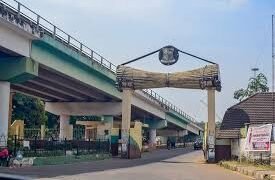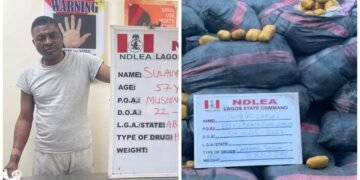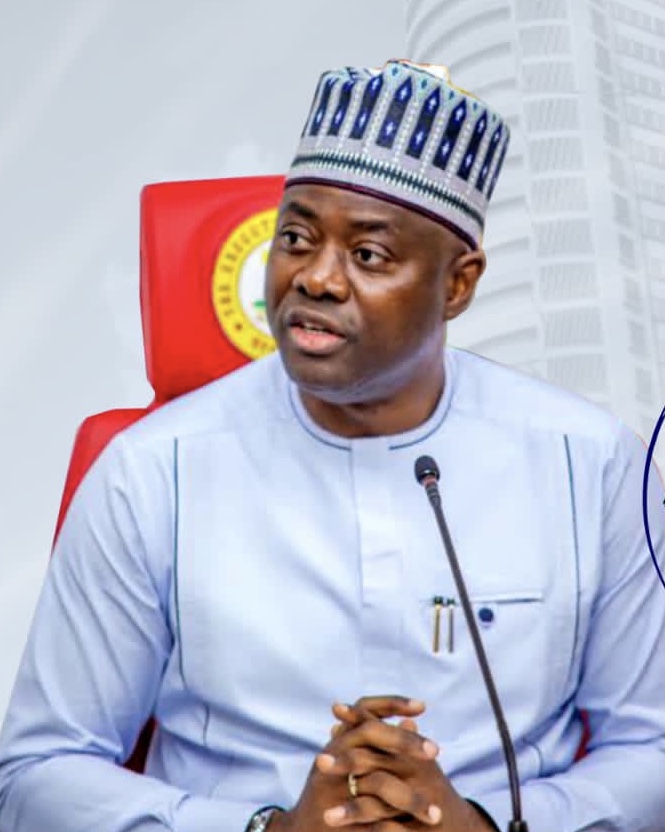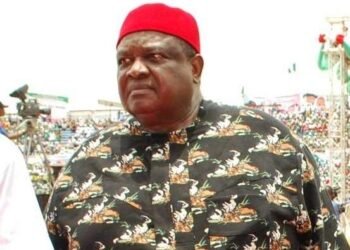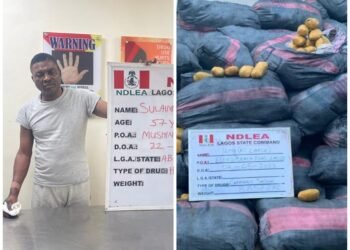Despite the Federal Government’s promises that petrol scarcity would be over weekend, the scarcity of the product continued, on Sunday in Abuja, Lagos, Oyo and Ogun states.
There were long queues in Abuja, Lagos, Oyo and other states, mainly because of the difficulty associated with getting supply.
The Nigeria Union of Petroleum and Natural Gas Workers, NUPENG, also on Sunday directed its members to start compiling names of marketers hoarding Premium Motor Spirit, PMS, commonly known as petrol, or selling above official depot price.
National Operation Controller Independent Petroleum Marketers Association of Nigeria, IPMAN, Mike Osatuyi, said his members were still finding it difficult to source the product from depot owners.
According to him, independent marketers are still sourcing petrol at N190 per litre, against government’s N148 per litre regulated price, thus making it difficult for them to sell at the N162/N165 per litre regulated price.
Consequently, many of their outlets were seen shut, while long queues of automobiles took over all available space at the stations.
m depot owners.
According to him, independent marketers are still sourcing petrol at N190 per litre, against government’s N148 per litre regulated price, thus making it difficult for them to sell at the N162/N165 per litre regulated price.
Consequently, many of their outlets were seen shut, while long queues of automobiles took over all available space at the stations.
In Abuja, queues at petrol stations grew longer at the weekend as the impact of supply disruption entered the third week, despite assurances of quick resolution by the Federal Government.
At filling stations, motorists explained that they queued for over four hours before they could obtain petrol at the city centre.
At the suburbs of the nation’s capital, the scenes were chaotic as motorists struggled to get into few filling stations dispensing petrol.
As expected, while motorists had difficulty in purchasing petrol, black markets openly hawked the product in kegs, with price ranging from N350 to N400 per litre.
In Ibadan, the Oyo State capital, most of the filling stations were under lock and key while motorist queued at some they guessed would sell fuel later.
Also, black marketers kept filling in the gap while people wondered how it was possible for black marketers to get fuel while filling stations couldn’t.
A motorist who spoke with The Newsbearer on Sunday said saboteurs were already working in the nation’s petroleum sector in order to force Nigerians to accept the removal of the fuel subsidy.
The motorist, who refused to give his name, said “There are some people who keep milking Nigerians through the importation of fuel and that is why our refineries will never work.
“They want to force government’s hand to stop the fuel subsidy so they can fix their price themselves and when that happens, we are in trouble in the country.”
However, speaking to newsmen from Lagos on the development, the Executive Secretary of Major Oil Marketers Association of Nigeria, MOMAN, Mr. Clement Isong, expressed optimism that normalcy would return at the end of the week.
Mr. Isong said MOMAN was working with government agencies to improve supply of petrol across the country.
He said: “The important thing now is to stop the queues and it is only after that we can go back and check how much it cost and then submit our bills to the government.”
He disclosed that while supply had improved greatly, it would take another week to restore normalcy “if we continue getting good supply.”
On his part, the Public Relations Officer of the Independent Petroleum Marketers Association of Nigeria, IPMAN, Chinedu Ukadike, who spoke from Port Harcourt, said getting supply had been particularly challenging for independent marketers.
Ukadike said with the product not available at government-owned depots, independent marketers had to resort to buying from privately-owned depots at a cost far higher than what the government regulated.
with government agencies to improve supply of petrol across the country.
He said: “The important thing now is to stop the queues and it is only after that we can go back and check how much it cost and then submit our bills to the government.”
He disclosed that while supply had improved greatly, it would take another week to restore normalcy “if we continue getting good supply”.
On his part, the Public Relations Officer of the Independent Petroleum Marketers Association of Nigeria, IPMAN, Chinedu Ukadike, who spoke from Port Harcourt, said getting supply had been particularly challenging for independent marketers.
Ukadike said with the product not available at government-owned depots, independent marketers had to resort to buying from privately-owned depots at a cost far higher than what the government regulated.
He noted that most marketers were struggling to cope with the crisis, saying “when we signed bulk purchase agreement, there was a quantity of petroleum product that the NNPC agreed to supply to us monthly in terms of allocation but now that agreement has been breached by the NNPC, we are resorting to hustling for fuel wherever we can get it.
“That is because if you don’t do that, it becomes impossible for you to pay staff and pay several taxes imposed by various government agencies. The impact is serious on us and that is why you are seeing most filling stations shutting down.”
Ukadike also expressed optimism that the supply difficulties would ease in the coming week, stressing that “the queues are still there and we are having challenges getting supplies. But I heard that a vessel is coming in (into Port Harcourt) by next week. The supply from the vessel will relieve the remaining congestions we have.
“The biggest challenge is the high price we are getting the product because it is only at the government depots that you can get supply at government approved rate. So with this vessel coming next week, it will help to alleviate the sufferings of the masses,” he added.
The government had said that the distribution of petrol would soon normalise after it recalled the bad product imported into the country last week.
The government had given the assurance at a briefing in Abuja, adding that concerted efforts were being made to end the challenges in the supply of petrol.
It had explained that it was expecting over 2.3 billion litres of Premium Motor Spirit, PMS, in the country by the end of February and that over one billion litres of the product were currently being distributed nationwide.




